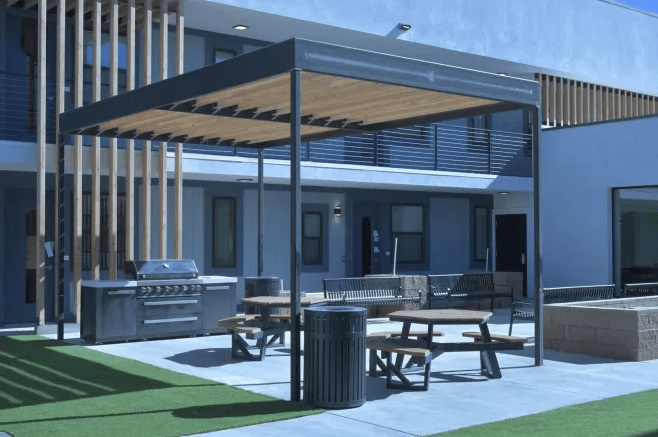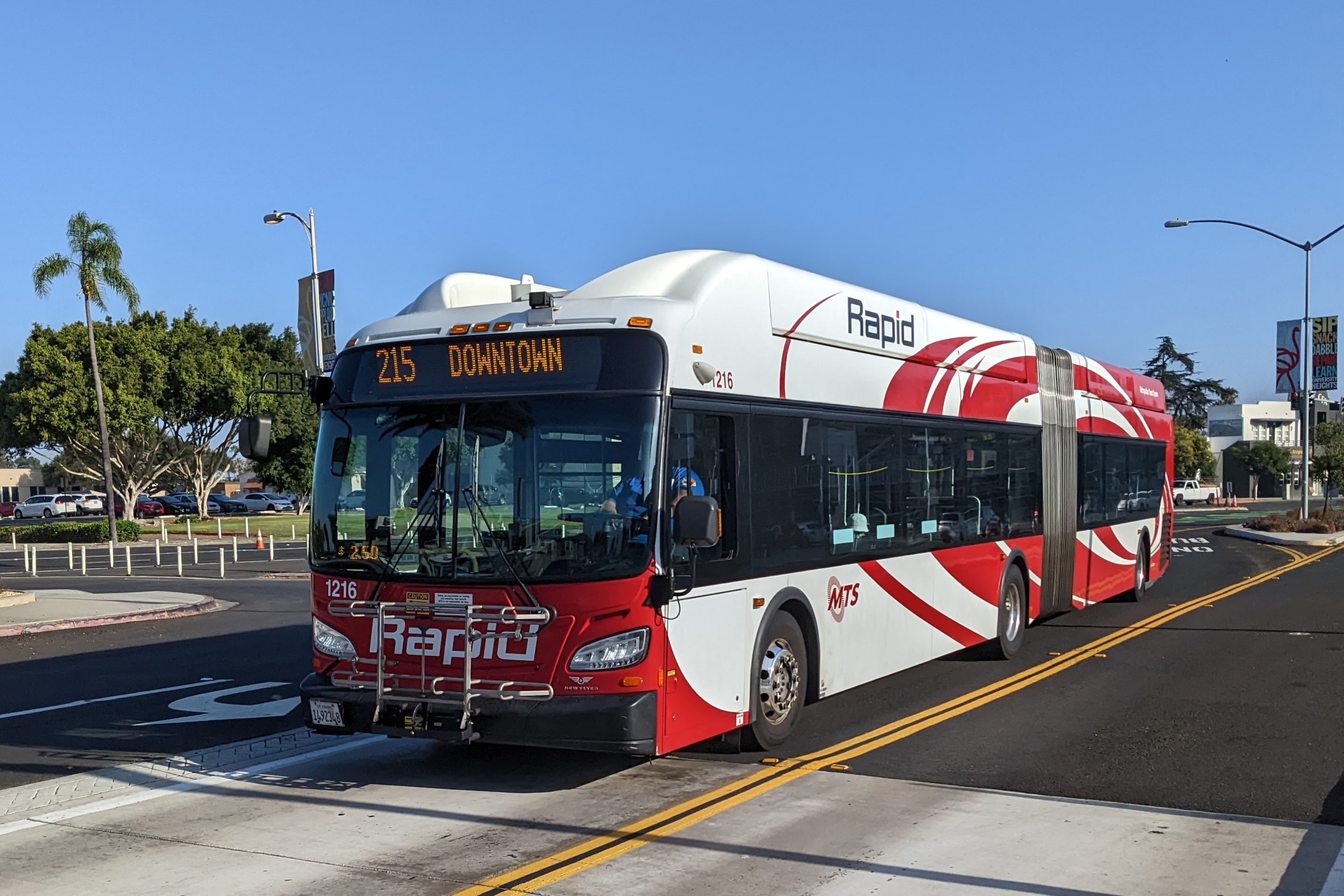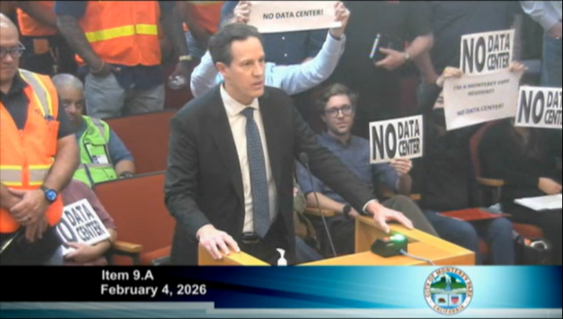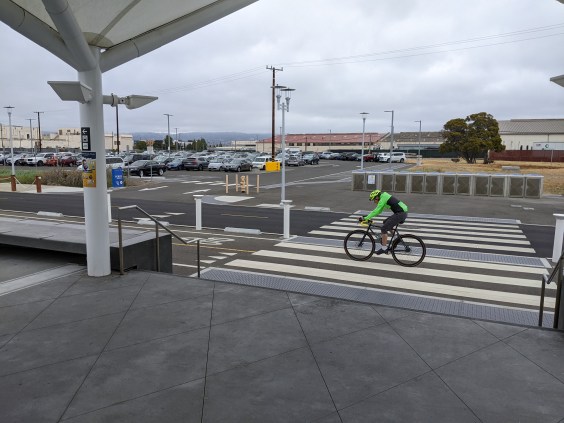Last month, the city of Lancaster opened the "Kensington Campus", a 14 acre full-service campus that is a mix of permanent housing, supportive housing, jobs, counseling and other services.
In just a few days, 100 people were moved into permanent supportive housing and dozens into temporary or bridge housing on the campus. When construction on campus is completed and COVID related restrictions are lifted, the project will include 150 one-bedroom units of supportive housing for homeless and chronically homeless individuals, bridge housing with 156 beds, 20,000 square feet of wrap-around supportive services, and an enterprise job creation building.
"The project itself is really state of the art when it comes to dealing with homelessness," says Lancaster Mayor R. Rex Parris. "It starts with the premise that everyone deserves to be in a place that they have opportunities. It was built to be as inviting as possible. We wanted to treat people like people... like you or I would want to be treated if we were in that situation."
Project construction cost about $21 million. Funding for construction came from Community Development Commission of Los Angeles County, city of Lancaster, the Los Angeles Homeless Services Authority and financial institutions. County Measure H funds, a 2016 sales tax passed by Los Angeles County voters, will pay at least $7 million for the support services that will be provided to Kensington Campus residents.
The 14-acre Kensington development is located at Avenue I and 32nd Street West on the outskirts of Lancaster. The project received little, if any, opposition from Lancaster residents during construction - despite a year's worth of construction delays, both COVID and non-COVID related. The project had been set to open in September, 2019.
In fact, while temporary shelter projects often face heated opposition campaigns in some urban areas of the county, Mayor Parris reported that there was almost no community opposition and in fact residents were supportive of the project. The greatest controversy for Kensington occurred after opening. On opening day, a Metro bus arrived with clients for Kensington's bridge housing program from outside of the Antelope Valley.
This angered residents and political leaders who felt betrayed that local residents experiencing homelessness were not given higher priority as Lancaster had been promised. In addition, best practices in placing individuals experiencing homelessness suggesting that people should be housed close to where they live, to remain close to support networks and jobs. There was an outcry that LAHSA (Los Angeles County Homeless Services Authority) who handles the county's homeless referral system had pulled a bait and switch on Lancaster which was hoping Kensington would be a relief for the nearly 5,000 people experiencing homelessness in the Antelope Valley.
However, The People Concern, a nonprofit that is overseeing the application process for and management of Kensington, answered concerns about the application process the next day noting that the Metro bus had only four people in it, and while they were bused in from the city of Los Angeles, they were all people with ties to the Antelope Valley (family, employment opportunities, etc.) and had specifically requested to be placed there when an open bed was available.
“It was reported that there were buses of people being brought in from Los Angeles, but in reality it was four people who had previously lived in the AV," explains John Maceri, executive director for the People Concern. "They were housed in Project Roomkey and had requested to return to the Antelope Valley when a room had become available."
Maceri also noted that L.A. County policy is to place people in temporary housing near where they are experiencing homelessness when available.
The volunteer program is on-hold while L.A. County COVID restrictions are in place. However, despite COVID restrictions, Kensington has filled the first 100 units of permanent housing (fifty more are scheduled to open in May 2021) and has started accepting referrals to its bridge housing component.
“We’ve been taking referrals slowly," Maceri explains. "We had two organizing days where we took the first wave of referrals, but then we’ve been taking a few new referrals every week. We’re taking it slowly both because we want people to have time to settle in and because of public health requirements.”
The "campus concept" divides Kensington into four different areas referred to as "townships" for residents in permanent housing. Each township will have 26 fully furnished permanent housing units, two service provider’s offices, community space, laundry facilities, bike racks, and a community garden. Roads also connect to the Veterans Administration facility next door.
The townships are each a short walk from a central piazza and amphitheater. Daily events such as gatherings, informational meetings, concerts, and movies will be held in the amphitheater, although programming is currently somewhat limited due to the pandemic. The piazza is also the location of many of the support services offered to residents, including: a mental health therapy building, an on-site medical clinic, an animal kennel, laundry facilities and a bed bug eradication facility.
"It's a nice place, certainly nicer than any place I lived in college or law school," says Mayor Parris.
"The design of the units is so that it will stand up to time. It's durable. The flooring is durable, the wall coverings are durable. They did a really good job. We wanted to design a place where people wanted to live, and they did that."
For a "tour" of the site during construction, visit this story from NBC News. For more details and specifics, see The People Concern Kensington flier.






